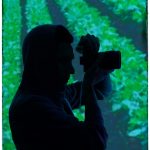Focusing is the name given to describe the natural of when something becomes clear…comes into focus, which contrasts trying to get focused by concentrating more. It is rooted in research showing behind lasting positive change is the ability to access a nonverbal, bodily feel when dealing with an issue.
“It’s called Focusing because it requires a special kind of “focus” to notice what is not yet clear, fuzzy and vague, implicit in how you interact with your situations and environment.” The International Focusing Institute (TIFI) continues on to explain that this “fuzzy dimension of experience is called the felt-sense.”
“Focusing fits almost always because any thought, image, feeling, interaction, or action-step can be used to lead to the implicitly sensed edge.” Eugene Gendlin
https://www.youtube.com/watch?v=l1DLPTnDa4k&feature=youtu.be
This video offers a taste of Focusing, by way of Tami Simon’s personal experience. This story was shared on episode 23 of Henna Inam’s Transformational Leadership podcast. Tami’s experience with Focusing is one ingredient in her larger story, which led to her founding Sounds True. As the leading publisher in North America of spoken-word spiritual teachings, Sounds True is a multimedia publishing company twice been included on the Inc. 500 list of the fastest-growing companies.
 Similar to Tami’s experience, a study on transformational Focusing experiences, published in the Journal of Humanistic Psychology in 2018, showed that Focusing supports a way of “experiencing that does not divide, but rather connects the person to a unified felt process that unfolds on its own.”
Similar to Tami’s experience, a study on transformational Focusing experiences, published in the Journal of Humanistic Psychology in 2018, showed that Focusing supports a way of “experiencing that does not divide, but rather connects the person to a unified felt process that unfolds on its own.”
Similarly, the practice of contacting one’s felt sense has been show to predicts more life satisfaction, less psychological distress, and less existential anxiety. This comes from the Focusing, the felt sense and meaning in life study, published in 2022 in the Person-Centered & Experiential Psychotherapies Journal.
Many familiar with meditation, mindfulness, yoga, or other practices contemplative in nature find Focusing complementary. An article in the Tricycle: The Buddhist review explained this is because Focusing helps in staying with, listening to, and learning from what arises within…as opposed to letting go of thoughts or feelings as they emerge. As the field of neurobiology continues to advance, more is being brought to light about the mind-body connection, confirming how body-oriented processes, such as Focusing, are necessary for creating meaning in experiences to live the life truly wanted.
“People change through feelings they have not consciously felt and expressed before. The steps of change and process do not come directly from the recognizable feelings as such. They come, rather, from an unclear, fuzzy, murky “something there”, an odd sort of direct datum of awareness (felt sense).” Eugene Gendlin
The video offers a nibble of Focusing with Eugene Gendlin, describing it as a mind-body dialogue. It is one of many videos created by Nada Lou, who is widely known for her teaching and more than 45 Focusing video productions.
It was the work of Eugene Gendlin PhD, who’s “research articulated that psychological change is best understood as a process of finding and following one’s inner felt experience.” This led him to developing Focusing, as a teachable process for anyone wanting to discover and tap into their felt sense for personal development. His early person-centered (client-centered, humanistic, phenomenology) research showed how the change process could experientially be understood. His contributions to what brings about positive change align with that Carl Rogers, his teacher and colleague, in contrasting more expert-directed approaches. He once explained that had there been a better understanding of the experiential response “there would have been no need for separation between Focusing-oriented and Person-centered approaches.
His book Focusing written for anyone, is one example of how he worked to give away the very process of change as a teachable skill instead of it being limited to “professionals” or “wasting away in academics”. He encouraged people to take a “split-level” approach to any instructions, including his, in order to “discover the experiences to which they point.” As a non-directive approach, Focusing supports feeling more in sync, self-assured and equipped to make positive changes that enhance every aspect of life.
Gendlin’s “Philosophy of the Implicit” is behind Focusing, with his early book Experiencing and the Creation of Meaning laying out what he later developed it into a comprehensive theory of the deep nature of life process. In his philosophical masterwork A Process Model, he offers “a new alternative to the dualism of mind and body.” Increasingly he is recognized as one of the seminal thinkers of our era, and is set about his work bridging the fields of philosophy and psychology, and academia and personal development.
“Focusing is spending time sensing something as yet undefined that comes in one’s body in connection with any specific problem or aspect of one’s life.” Eugene Gendlin
“The curious paradox is that when I accept myself just as I am, then I can change.” Carl Rogers
Focusing Nutrition is one example of diverse ways it is being applied, others include:
- Contemplative practices, such as meditation, mindfulness, and spirituality.
- Body centered practices, i.e. yoga, massage, Feldenkrais Method, or Alexander Technique.
- Business and Social organizations, innovation practices and critical thinking.
- Coaching, supporting people in finding their right next.
- Community Development, with Focusing and experiential listening and dialogue.
- Fine Arts, expressing ideas in fresh and creative ways.
- Services and Education for Children, developing experiential wellness skills.
